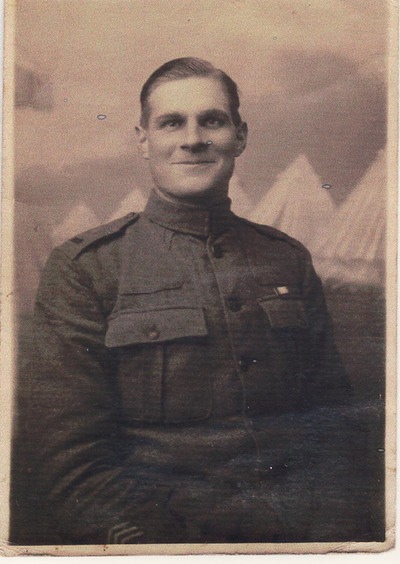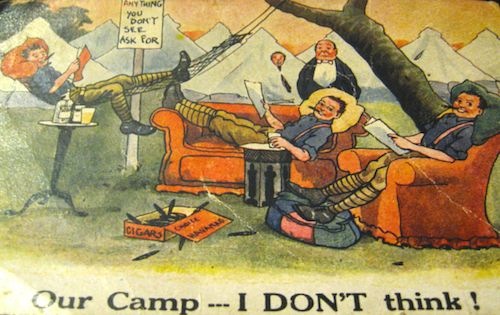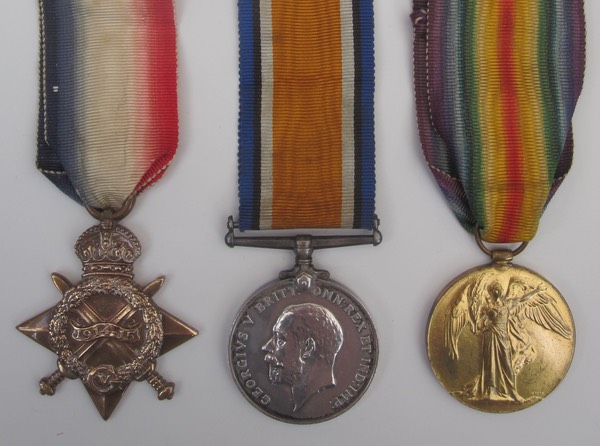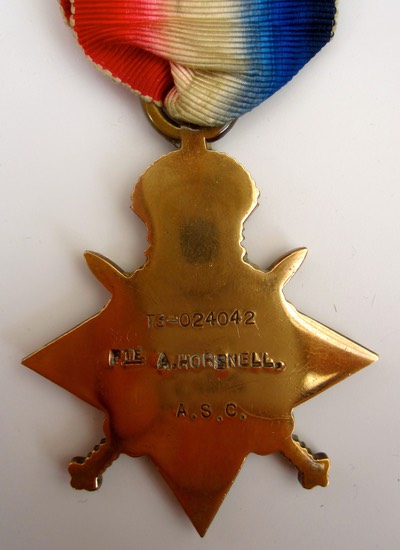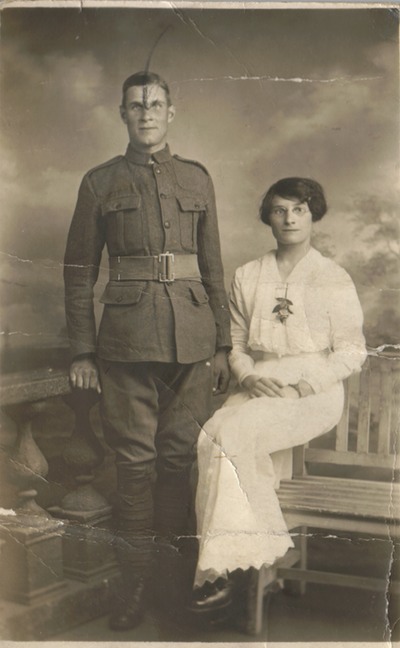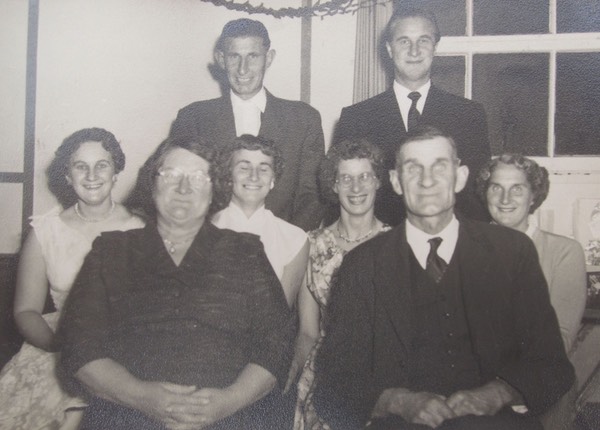Arthur Horsnell was born 16th March 1896 in the village of Hatfield Peverel, Essex. He was the third son (and fourth child) of Alice and Robert Horsnell.
At the time of the 1911 census, Arthur, aged 15, was living with his mother and step-father, Arthur Doe. He’d left school and his occupation was given as “stock boy on a farm”.
When Britain declared war on Germany on 4th August 1914, Arthur was aged 18. Eight days later, on 12th August, his elder brother, Fred, volunteered for duty, aged 20, and three days after that his eldest brother, Charles, 24, a regular in the 5th Dragoon Guards, embarked for France with the British Expeditionary Force (BEF).
With two brothers in the army, and calls for more young men to enlist, Arthur joined the Army Service Corps (ASC), probably in October 1914, aged 18.
Arthur’s military service record does not survive. It was lost in September 1940, when a German incendiary bomb struck the War Office repository in Arnside Street, London, destroying the records of millions of soldiers from the First World War.
Arthur’s Medal Roll record does survive, and the scant information it contains is summarised here:
|
Extracted from Ministry of Defence Medal Roll |
|
| c.October 1914, place unknown | Enlisted into the Army Service Corps (service number 024042; rank Driver) |
| 21st July 1915 | Embarked for France |
| March / April 1918 | Transferred to Royal Irish Rifles (service number 47306; rank Rifleman) |
| 25th March 1919 | Demobilised |
The ASC was the “workhorse” of the Army, keeping supply lines open between the Army base camps along the Channel coast of France and the front line.
Driver Arthur Horsnell was attached to the 19th (Western) Division, driving the supply vehicles of the 19th Divisional Train. In particular he seems to have worked with horse-drawn vehicles, since a letter written in August 1915 refers to him being at “Base Horse Transport Division”. Arthur may well have gained experience of horses in his pre-war work as a farm stock boy.
From Arthur's wartime letters home it’s possible to add details not recorded in his MoD record, enabling a clearer picture of his military activity to emerge:
- December 1915: On transport duty to the trenches;
- Christmas 1916: On home leave;
- January 1916: Attached to 1/2 Highland Field Company Royal Engineers;
- August–December 1917: wounded in the left leg during the Battle of Passchendaele; sent to St Luke’s War Hospital, Bradford (December 1917 to February / March 1918);
- March / April 1918: In Belfast, Ireland, presumably transferring from the ASC to the Royal Irish Rifles (RIR);
- April 1918: With the RIR at Larkhill Camp, Salisbury Plain, England – a patient at Fargo Military Hospital, Salisbury Plain, where he was throughout May 1918, and possibly longer.
Arthur Horsnell’s First World War medals and ribbons. From left to right they are: 1914–15 Star, British War Medal, Victory Medal. Each medal is inscribed:
T3-024042 Pte. A. HORSNELL A.S.C
Service number (T3-024042/T3 for Horse Transport 3rd New Army), rank (Pte./Private), name, unit (ASC/Army Service Corps).
Medals
Arthur was awarded three campaign medals:
- 1914–15 Star
- British War Medal
- Victory Medal
Arthur’s medals have been passed down through the male line of his family and today (2015) are with his great-great-grandson.
Family and later life
In 1919, Arthur married Elizabeth Crane (1897–1969) at St Andrew’s Church, Hatfield Peverel. They had seven children – five daughters and two sons. One daughter died in infancy.
The family lived in Hatfield Peverel, and then at 10b Eastern Cresent, Chelmsford.
Arthur worked as a platelayer and ganger (foreman / team leader) for the Great Eastern Railway.
Arthur died 28th February 1978, aged 81.
Information request
If you have information or photographs relating to Arthur Horsnell, please use the contact form to get in touch.
Selected sources
Ministry of Defence Archives, Hayes, 6th Janurary 1982, pers comm. Letter detailing Arthur Horsnell’s Medal Roll record.
